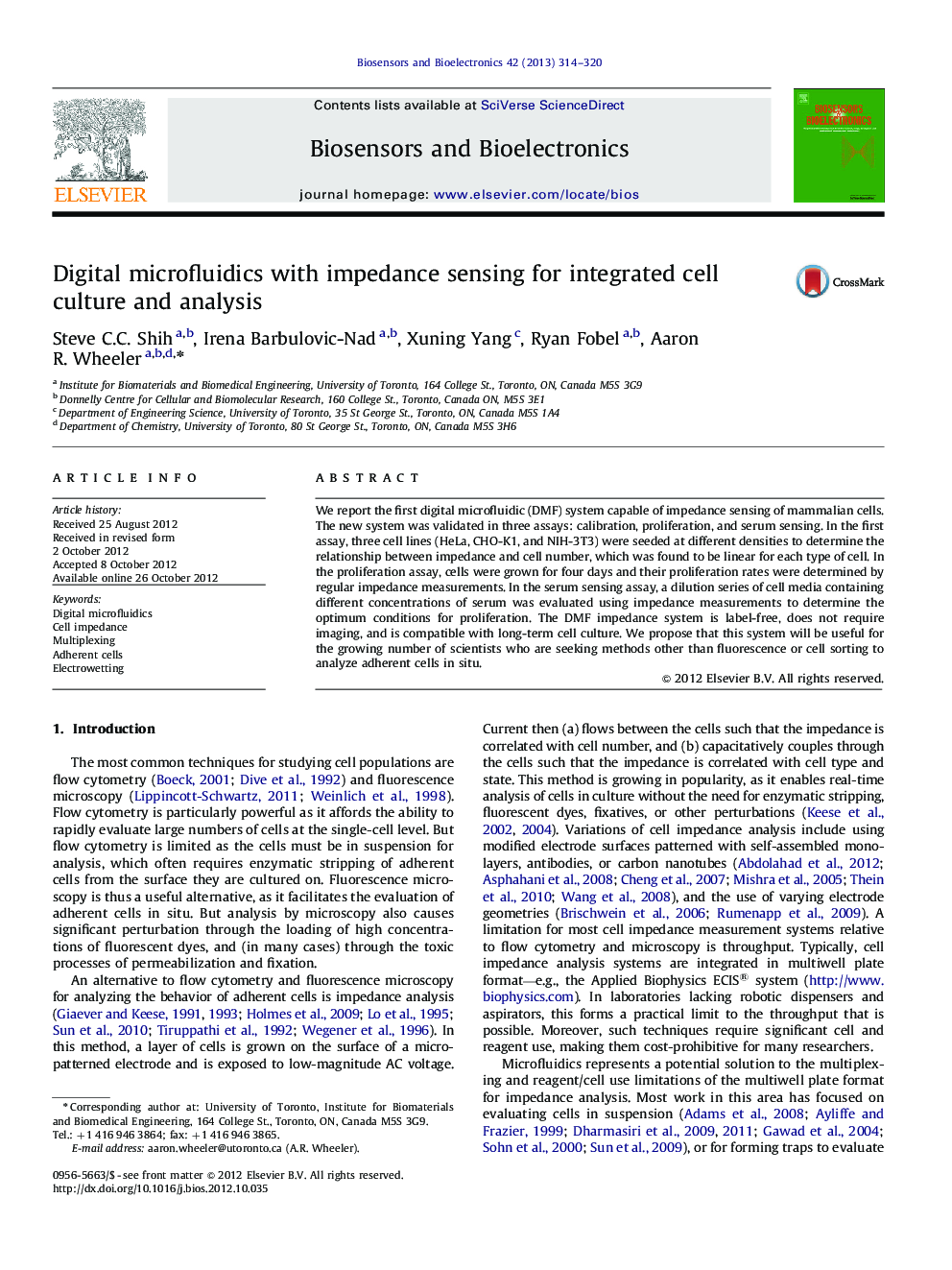| کد مقاله | کد نشریه | سال انتشار | مقاله انگلیسی | نسخه تمام متن |
|---|---|---|---|---|
| 867109 | 1470989 | 2013 | 7 صفحه PDF | دانلود رایگان |

We report the first digital microfluidic (DMF) system capable of impedance sensing of mammalian cells. The new system was validated in three assays: calibration, proliferation, and serum sensing. In the first assay, three cell lines (HeLa, CHO-K1, and NIH-3T3) were seeded at different densities to determine the relationship between impedance and cell number, which was found to be linear for each type of cell. In the proliferation assay, cells were grown for four days and their proliferation rates were determined by regular impedance measurements. In the serum sensing assay, a dilution series of cell media containing different concentrations of serum was evaluated using impedance measurements to determine the optimum conditions for proliferation. The DMF impedance system is label-free, does not require imaging, and is compatible with long-term cell culture. We propose that this system will be useful for the growing number of scientists who are seeking methods other than fluorescence or cell sorting to analyze adherent cells in situ.
► We have developed the first digital microfluidic device capable of cell impedance sensing.
► The system is capable of cell seeding, long-term culture, and multiplexed impedance analysis.
► Droplet movements are controlled with high fidelity using a feedback control system.
► Analyses are feasible with nearly 1000-fold reduction in reagent use relative to alternatives.
► This technique is particularly useful for applications involving small numbers of preciouscells.
Journal: Biosensors and Bioelectronics - Volume 42, 15 April 2013, Pages 314–320